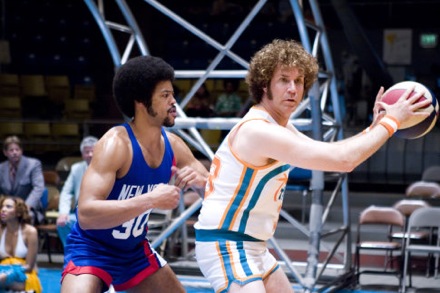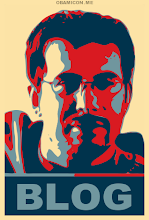When John Dalcino’s short, thin fingers first hit the slick, white keys of a piano the room brightens.
At that moment, the demons go away and tranquility and grace fills his troubled mind.
“His eyebrows would raise and it was like he wasn’t there. He had this third eye that was channeling the music. If you looked at him straight in the eye while he’s playing, it was like he was looking at God. All he was seeing was the music in his head,” said rapper Shock-G, formerly known as Humpty Hump of the 80’s Bay Area hip-hop group Digital Underground.
Shock-G first met Dalcino in the early 1980s when he sold keyboards at a local music shop on East 14th Street in San Leandro.
Dalcino had a studio in his home at the time that was stocked with some of the best music equipment available, said Shock-G.
He had the hippest, most beautiful studio in the Bay,” said Shock-G.
Before Digital Underground fully formed they cut their teeth at Dalcino’s home, bouncing around rhymes and rhythms in a genre of music that was set to explode upon the nation’s consciousness.
“Back then there wasn’t many people rapping in the Bay Area yet,” said Shock-G, “Hammer was getting up there, but most were just getting started.”
While artists like Shock-G, Tupac Shakur and M.C. Hammer were gaining a large following, the career of John Dalcino didn’t falter because of the standard music stereotypes of drugs, booze and women, in his case, something fundamental was holding him back: his mind was sick.
They say there’s a fine line between genius and insanity and Dalcino crossed over that line in his early 20’s—in fact, in a clinical sense, his medical records would say he did it seven times.
His mother says she knew the baby growing in her belly during the winter of 1956 was going to be a musician when he would repeatedly kick in a constant rhythm.
When Dalcino was born, he was a quick learner.
“At six months old, I took John to the doctor and the doctor said, ‘Look at that. He has perfect control. So I put him on the toilet and he was potty trained. Nobody could believe it,” said Carolyn Dalcino.
By age four, Dalcino began playing around on the piano and vaguely discernible music started emanated from the room, said his mother, but she thought her son was too different than the other children and kept him apart from other kids.
“My mom would take the keyboard cover and slam it on my fingers,” said Dalcino, “Everybody was outside swinging on swings and making toy boxes and I couldn’t go out there and join in on the fun. She caught me looking out the window one day and she took the cover and broke three of my fingers.”
Dalcino says he can play the drums, bass guitar, clarinet and saxophone, but is most proficient playing the piano.
As he grew up in San Leandro, he excelled in music at every level of his public schooling.
He was so good that, at age 15, he played for Sammy Davis, Jr. at a concert in Lake Tahoe.
But, the mental breakdowns that would plague him throughout his life would soon begin to make themselves known through violent rants and erratic public behavior.
During one episode, he ran through the streets of San Leandro in front of a group of girls naked. Soon afterward, he was sent to a mental hospital for the first time.
“I was 20 and they committed me! I walked out, threw away my pills and snapped and they put me back in again,” said Dalcino.
Through the fog of numerous medications, Dalcino sat in with some of the most famous musicians of the 20th century.
Mingo Lewis, Woody Herman, Don Ellis, Carlos Vega and Harry Connick, Jr. all had Dalcino sit in on performance when they came to the Bay Area.
Today, after three heart attacks before the age of 50, he says he takes 22 different medications to treat his mental illness and to keep his heart ticking properly.
Luckily, he says because he worked a time as a garbage man, the local Teamsters union foots the bill for most of his medication that cost $3,450 a month.
As he orders a large coffee with eight shots of espresso, a customer in the coffeehouse raises an eyebrow and smiles.
The barista, Jose, says they limit the amount of shots of caffeine for health reasons, but he’s taken an order of nine before.
It’s clear, though, that without music, Dalcino’s eccentricities even show in his coffee order.
Sitting at a corner table, sipping his liquid defibrillator, the need for music’s mathematical order reveals itself.
It’s his habit to unload all his personal effects on the table in front of him.
It’s as if he’s placing the objects in a row similar to how a composer would place notes on a sheet of music.
To his left he places a worn, black wallet bulging with plastic cards, photos and raggedy pieces of small paper.
Next to that, placed slightly above the wallet, his keys. Next to that, again slightly higher than the keys, he places a blank compact disk, next to that slightly lower on the scale he counts out 10 one-hundred dollar bills, followed by 10 fifties and then 10 twenties placed as the low as the wallet.
The music in his head doesn’t flow as well as it once did. He says he barely plays the piano much anymore.
Walter Felis, a former tenant of one of his mother’s duplexes, says most of the time he doesn’t make any sense when he’s talking to you, just these long speeches that might mean something to him, but not to anybody else.
At the coffeehouse, he would end cogent answers to questions with peculiar non sequiturs, including a date witht Paris Hilton next week and story of dining with a local musician.
“I told him, you’re coming to my house for dinner. He said, ‘I didn’t know black people ate with white people’. I said, shut the f--- up and eat your pasta,” blurted Dalcino.
“When he starts playing the keyboards, he’s like Mozart,” said Felis.
“He used to be smooth back in the day,” said Shock-G, “Now, he plays like he talks, but in his music I can still hear genius.”
Music has always been his safe house from a world that seems too foreign for his ailing psyche to handle.
“When I get into a zone, everything is easy for me because I don’t have to talk,” said Dalcino.
“Stan Getz told me, some night it’s s--t and other nights it’s magic and I could never get away from that. Music is a drug,” says Dalcino.
It’s the only drug in his medicine cabinet that makes him feel himself.




